-
Israel attacks targets in Syria to prevent advanced arms shipments to Hezbollah
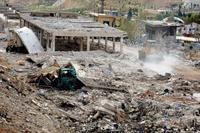
Israeli jets bombed two military targets in Syria – one near the Damascus International Airport, the other near the town of Dima, north of Damascus and near the Syria-Lebanon border – and as has been the case in previous such attacks, there was no confirmation or elaboration from Jerusalem. Syrian general command sources said that several facilities had been hit, both at the Damascus International Airport and in the area of Dimas. This is the tenth Israeli attack against military depots in Syria since January 2013. The attacks have had a specific goal: to prevent the Assad regime and Iran from transferring advanced weapon systems to Hezbollah. When Israel’s intelligence services notice that such systems are gathered for the purpose of shipping them to Hezbollah, the shipments are destroyed before they are delivered to Hezbollah.
-
-
Crime data research sheds new light on British Muslim communities

U.K. Muslim communities may not be as victimized by violent crime, or as dissatisfied with the police as is widely suggested and believed, according to new research. An examination of statistics reveals a surprising counter-narrative to commonly held perceptions of British Muslim communities and their relationships to crime victimization and the criminal justice system. Despite widespread condemnation of police counter-terrorism measures such as stop and search, data from the Crime Survey of England and Wales reveal that a sizeable majority of Muslim respondents not only reported positive attitudes toward a range of subjects such as police fairness, reliability, and relevance to the community but are in many cases more likely to do so than non-Muslim respondents.
-
-
NIST study argues for RFID forensic evidence management

Radio frequency identification (RFID) tags— have become increasingly popular for tracking everything from automobiles being manufactured on an assembly line to zoo animals in transit to their new homes. Now, thanks to a new NIST report, the next beneficiaries of RFID technology may soon be law enforcement agencies responsible for the management of forensic evidence. The release notes that the practical question that agencies must consider is whether RFID technology can produce measurable benefits and a positive return on the funds invested in a new system. The NIST report estimates that RFID systems can pay back their initial set-up cost in about two years.
-
-
Studying the long-term aging of electronics in nuclear weapons
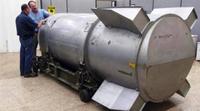
Sandia National Laboratories is studying how environments, including radiation which originates from a nuclear weapon itself, could affect the performance of electronics in the W76-1 warhead as they age. Researchers have studied radiation effects since the early days of nuclear weapons, but a 30-year program, which begun in 2006, will provide real-time data for the first time on how electronics age within the weapon. Studies in the past used techniques that artificially accelerated the aging process based on a range of assumptions resulting from experiments and previous research.
-
-
New report, video detail dynamics of deadly Chicago house fire
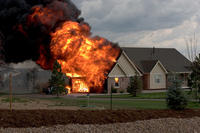
A new NIST computer-modeling study of a 2012 Chicago house fire reveals the conditions that unleashed a surge of searing gases, leading to the death of a veteran firefighter. The simulation shows that fire in a covered back porch caused a closed steel-faced, wood-framed door to crumble, releasing pressure and causing hot gases to pour into the adjoining hallway where the victim and another firefighter were advancing a fire hose. The coincidental timing of the responders’ “interior attack” and the door’s failure proved to be deadly. In less than five seconds, the flow of gases caused the hallway temperature to soar, from about 60 degrees Celsius (140 degrees Fahrenheit) to at least 260 degrees Celsius (500 degrees Fahrenheit), the study found.
-
-
Number of lone-wolf terrorist attacks in U.S. not rising, but police are targeted more often
Lone wolf terrorist attacks in the United States are not on the rise as popular culture might lead one to believe — but the attacks are changing for the worse, according to new research. The targets, weapons, and motives have changed in recent years. Before 9/11, these terrorists used bombs, but now high-velocity firearms are the weapon of choice, he said. The change might be a result of legislation enacted after the Oklahoma City bombing limiting the public’s access to bomb-making ingredients. Police and military personnel are now the preferred targets of modern lone wolf terrorists. Domestically, attacks on the power grid are the next big threat, the researchers say. Lone wolf terrorist Jason Woodring successfully downed the electric transmission system of rural Arkansas in 2013. His vandalism affected 10,000 people and cost $3 million in repairs.
-
-
U.S. nuclear arsenal must be upgraded to maintain effective deterrence: Experts
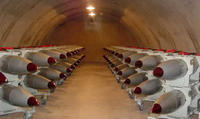
Former military officers, academic strategists, scientists, and congressional leaders have recently been calling for the development of new nuclear weapons to replace the nation’s older, outdated stockpiles. Twenty-five years since the cold war ended, the U.S. nuclear arsenal has been significantly reduced to its current level of 4,804 nuclear weapons — from a peak of 31,000 weapons in 1967.As cooperation with Russia deepened in the 1990s, U.S. weapons complexes deteriorated. A recent “60 Minutes” story on the U.S. nuclear forces found that missileers charged with watching over and controlling Minuteman III ICBMs in Wyoming were still using floppy disks to store critical information. One expert arguing for shoring up and upgrading the U.S. nuclear deterrence says that “one of the reasons deterrence is so valuable is that it provides incentives for self-discipline in the behavior of states that otherwise cannot be trusted to behave peaceably.”
-
-
New York wants its own weather detection service
In the face of recent devastating snowfall in some regions, Governor Andrew Cuomo has announced that the state government will remain committed to its plans for the New York Advanced Weather Detective System, a state-run and focused weather service and alert system. Officials said that FEMA funding from the aftermath of Superstorm Sandy would pay for the new weather system, and that $15 million was approved in the state budget for 2014-15.
-
-
USGS awards $2 million grant to Center for Earthquake Research and Information
The U.S. Geological Survey has awarded the Center for Earthquake Research and Information (CERI) at the University of Memphis $2 million over the next three years to continue monitoring earthquakes in the central and southeastern United States. The CERI seismic network includes 140 seismographs in nine states. It integrates data in real-time from an additional 160 stations to process about forty gigabytes of data each day and processes information from about 500 earthquakes each year.
-
-
Mobile biometric device expedites identity matching
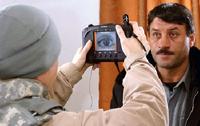
The Stockton (California) Police Department (SPD) has been quietly testing a state-of-the-art Mobile Biometric Device (MBD) technology for the past four years. Designed quickly to scan fingerprints, irises, and other biological information while officers and evidence technicians are on the field, MBDs can communicate with remote fingerprint databases and confirm matches in as little as three minutes.
-
-
Washington State police overwhelmed by public requests for dash- and body-cam footage

Police departments in Washington State are reviewing their dash- and body-cam programs as they see significant increase in public requests for video footage under the state’s Public Records Act, which puts no limit on the number of records which may be requested nor requires that the person requesting records have any connection to the information being requested.
-
-
California’s early-warning ShakeAlert system to be rolled out next year
Officials in California expect the state’s ShakeAlertsystem to be available to some schools, fire stations, and more private companies early next year. Until now, only earthquake researchers, some government agencies, and a few private firms have received alerts from the statewide earthquake early warning system. The 2015 expansion will occur as long as Congress approves a $5 million funding request that has passed committees in both the Senate and House. A full vote on the budget was delayed until after the midterm elections.
-
-
U.S. Army creates a Cyber branch

Soldiers who want to defend the nation in cyberspace, as part of the U.S. Army’s newest and most technologically advanced career field, now have an Army branch to join that will take its place alongside infantry, artillery, and the other Army combat arms branches. Army Secretary John McHugh and Chief of Staff Gen. Raymond Odierno approved the creation of the Cyber branch in September. “The establishment of a Cyber Branch shows how important and critical the cyber mission is to our Army, and allows us to focus innovative recruiting, retention, leader development, and talent management needed to produce world-class cyberspace professionals,” said Lt. Gen. Edward Cardon, the commanding general of Army Cyber Command.
-
-
Scientist develops uncrackable security code for nuclear weapons
Nuclear weapons exist, so control of nuclear weapons is essential. Intrinsic Use Control (IUC) is a concept which is capable of providing improved quantifiable safety and use control within a nuclear weapon. As a basic concept, use control is best accomplished in the weapon itself rather than depending on administrative controls, fences, and guards. Using established technology, IUC uses passive use control to resist any attacks or unauthorized use of a weapon at either the component or the fully assembled levels.
-
-
Dogs trained on pseudo-explosives could not reliably identify genuine explosives

When it comes to teaching dogs how to sniff out explosives, there is nothing quite like the real thing to make sure they are trained right. This is the message from researchers after finding that dogs which are trained with so-called “pseudo-explosives” could not reliably sniff out real explosives (and vice versa).
-
More headlines
The long view
Why Was Pacific Northwest Home to So Many Serial Killers?
Ted Bundy, Gary Ridgway, George Russell, Israel Keyes, and Robert Lee Yates were serial killers who grew up in the Pacific Northwest in the shadow of smelters which spewed plumes of lead, arsenic, and cadmium into the air. As a young man, Charles Manson spent ten years at a nearby prison, where lead has seeped into the soil. The idea of a correlation between early exposure to lead and higher crime rates is not new. Fraser doesn’t explicitly support the lead-crime hypothesis, but in a nimble, haunting narrative, she argues that the connections between an unfettered pollution and violent crime warrant scrutiny.
Bookshelf: Smartphones Shape War in Hyperconnected World
The smartphone is helping to shape the conduct and representation of contemporary war. A new book argues that as an operative device, the smartphone is now “being used as a central weapon of war.”
